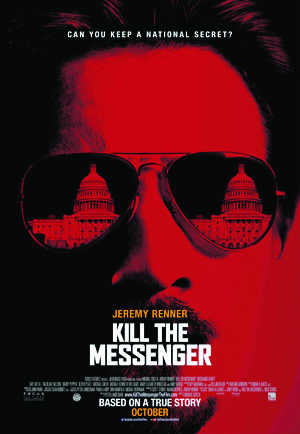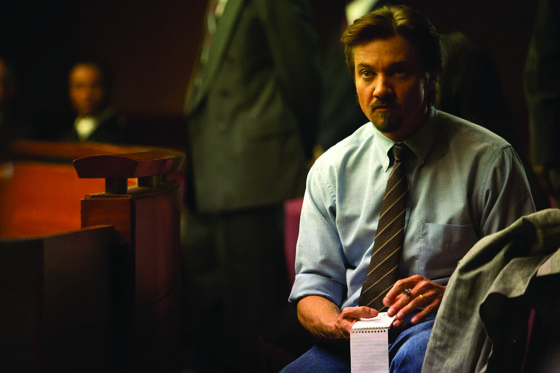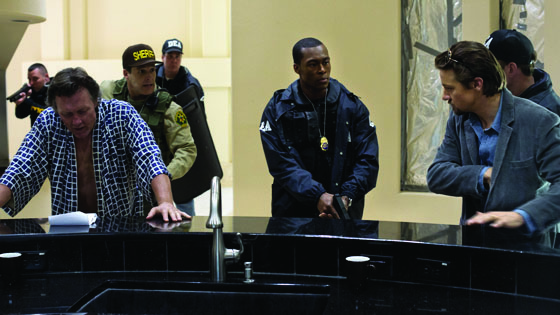[Solid Rock Fist Up]
More often than not, reporters are all looking for that one big story to get them to the top. The one that will prevent them from ever covering a county fair or a cat fashion show ever again.
Kill the Messenger tells the story of Gary Webb (played by Jeremy Renner), one of the most maligned figures in investigative journalism. But his career didn’t begin that way. He became an outcast in the world of journalism because of a story he filed for the San Jose Mercury News. Not the Washington Post or the L. A. Times. The San Jose Mercury News.
Webb’s 1996 investigative series Dark Alliance revealed a connection between the C.I.A., Nicaraguan contras and the crack cocaine trade. The exposé was adored. However, it was soon met with a fierce reaction from the media, like papers such as the Washington Post and the L.A. Times, which went to great lengths to discredit Webb’s reporting. Webb soon turned into the story.
The film is based off the book which shares the same name as the exposé. Renner does a wonderful job as Webb, showcasing the kind of work we haven’t seen since The Hurt Locker. But the filmmakers can’t decide whether to focus on the story or the man writing the story. I wish they would have decided which path to follow instead of going back and forth.
The story of the investigative series is beyond fascinating, taking Webb across California to meet with drug dealers, as far away as Central America to interview and build sources within drug cartels and to Washington D.C. to talk to government officials who knew what was happening. Director Michael Cuesta flies through the actual story though, when in fact there is probably enough to make an HBO miniseries on Webb’s investigation.
The decline of Webb once his world begins to crumble around him is also something that could have taken up its own movie. Webb is a man of questionable ethics. The audience learns early in the film that he cheated on his wife Sue (Rosemarie DeWitt) while working at newspaper in Ohio. But throughout the course of the film, we see everyone he talks to and how he comes about his information. Was everyone going after Webb because they were jealous of his story or did they really believe he made up portions of the story?
In journalism school, nobody prepares you for the onslaught of negativity that will come your way when you write something about a person and that person’s friends and family doesn’t agree with what you said. I remember the first time I got threatened with a lawsuit because of a story. I knew what I had written was solid and my publisher and editor backed me and my reporting. But I remember sitting at my desk, shaking at the thought that I may have screwed up enough to ruin someone’s life. I’m not sure how this film will resonate with people outside the media, but Renner absolutely nails going through the range of emotions a journalist might feel if his character is called into question.
Mary Elizabeth Winstead is fine, sometimes on point and other times under performing, as the editor who first supports Webb and his story before falling in line with everyone else questioning his journalistic ethics. Oliver Platt gives an unusually subdued performance as the publisher. Ray Liotta pops up near the end of the film, as a character I wish we would have seen more as, to tell Webb he was on the right path.
In terms of movies about journalists and journalism, Kill the Messenger is more on par with the 2007 film The Hunting Party than the industry standard All the President’s Men. I understand the constraints a film has, and maybe this story would have been better suited as a miniseries on HBO or any other cable network. But I’m satisfied with what was made and I left the theater more than curious about what from the story was left out of the movie. That should be the goal of all filmmakers, to leave its audience asking questions and wanting more.








Comments on this entry are closed.